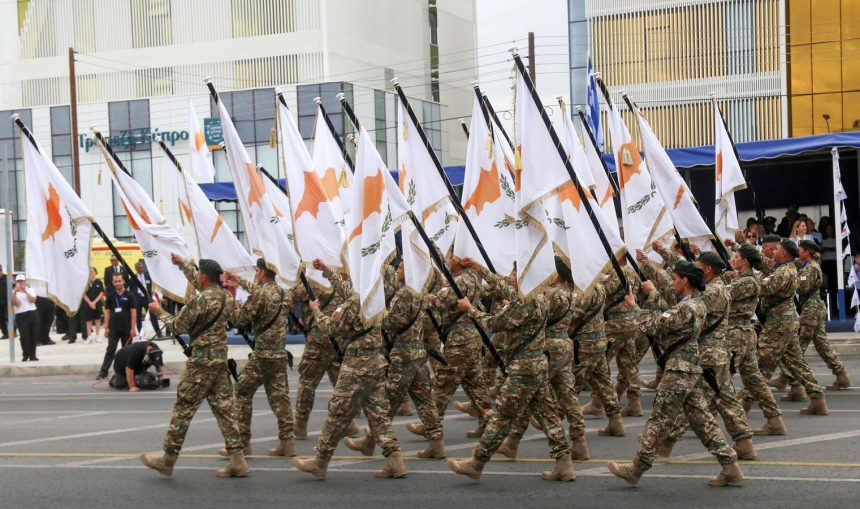The Republic of Cyprus is embarked on a significant military modernization and expansion program, driven by regional security concerns and a desire for closer integration with the West, particularly NATO. President Nikos Christodoulides has openly expressed his ambition for Cyprus to join the alliance, emphasizing the need for the Cyprus National Guard to benefit from the opportunities afforded by NATO membership. This aspiration reflects a broader strategic shift towards Western alignment, underscored by Nicosia’s increasing defense spending and the acquisition of advanced weaponry from Western partners, including Israel and potentially the United States. While this modernization effort is viewed as crucial for bolstering Cyprus’s defense capabilities in a volatile eastern Mediterranean, the path to NATO membership faces a formidable obstacle in the form of Turkey’s unwavering opposition.
Cyprus’s pursuit of NATO membership is inextricably linked to the unresolved Cyprus question, the decades-long division of the island following the 1974 Turkish invasion. Turkey, the sole country recognizing the Turkish Republic of North Cyprus, holds significant sway over the island’s future and would undoubtedly veto any Cypriot application to join the alliance. While discussions about NATO membership could potentially pressure Turkey to reconsider its stance on a two-state solution for Cyprus, the deeply entrenched nature of the conflict makes a near-term resolution unlikely. This political reality casts a long shadow over Cyprus’s NATO ambitions, leaving the island in a precarious position as it seeks to enhance its security within a complex geopolitical landscape.
Despite the challenges posed by Turkey’s opposition, Cyprus is actively strengthening its defense capabilities. Recent acquisitions, such as the Barak MX air defense system from Israel, demonstrate a clear commitment to modernizing the National Guard and replacing aging Russian equipment with Western counterparts. This modernization drive aligns with President Christodoulides’ pledge to increase defense spending to 2% of GDP, a benchmark for NATO member states. While this represents a significant investment for the island republic, it also underscores Nicosia’s determination to contribute to regional security and demonstrate its value as a potential NATO partner. Furthermore, Cyprus’s growing defense expenditures indicates a commitment to aligning with European defense initiatives, bolstering its geopolitical relevance within the European Union.
The impetus for Cyprus’s military buildup stems from several interconnected factors. The volatile geopolitical environment in the eastern Mediterranean, characterized by shifting alliances and competing interests, necessitates a robust defense posture. The recent threat from Hezbollah, which raised concerns in both Nicosia and Washington, further highlights the security challenges facing the island nation. Beyond immediate security concerns, Cyprus’s military modernization is part of a broader strategic realignment towards the West. Strengthening ties with the United States and Israel are driving efforts to westernize the Cypriot armed forces, a process further facilitated by the lifting of the US arms embargo in 2020.
However, this westward shift is not without risks. While closer ties with the West offer significant opportunities, they also risk antagonizing both Turkey and Russia, potentially leading to a convergence of their policies against Cyprus’s interests. Nicosia must carefully navigate this delicate balance, recognizing the potential for escalating tensions with its powerful neighbors. The historical priority for Cyprus has been resolving the Cyprus question, not engaging in regional power struggles. However, the current geopolitical climate necessitates a more proactive approach to security, forcing Cyprus to balance its long-standing desire for reunification with the immediate need to bolster its defenses.
As Cyprus continues its military buildup, the potential for renewed tensions with Turkey remains a significant concern. Ankara has already criticized Nicosia’s recent arms acquisitions, warning of a potential arms race on the divided island. While a crisis on the scale of the late 1990s S-300 dispute seems unlikely, Turkey’s growing naval presence in the eastern Mediterranean, driven by its Blue Homeland doctrine, raises concerns about potential clashes. Cyprus’s burgeoning partnership with the West, particularly in the defense realm, is viewed with suspicion by Turkey, which perceives it as a challenge to its regional ambitions. As such, Cyprus must tread cautiously, mindful of the potential for its actions to further inflame tensions and jeopardize its long-term goal of reunification.



